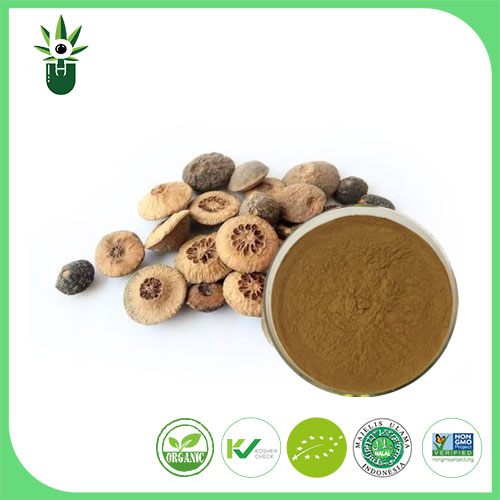Plant Extracts: Nature’s Powerhouse in Modern Wellness and Industry
2025-04-28
In the quest for natural health solutions and sustainable products, plant extracts have emerged as a powerful tool. From the cosmetic industry to health supplements, and even in food and beverage, plant extracts are everywhere. But what exactly are plant extracts, and why are they so widely used? Let’s dive into the world of plant extracts and uncover their benefits, uses, and growing popularity.

What Are Plant Extracts?
At their core, plant extracts are concentrated substances derived from various parts of plants, such as leaves, flowers, roots, seeds, or bark. These extracts contain the plant's active compounds and beneficial properties, which are often harnessed for medicinal, therapeutic, or industrial purposes. The extraction process usually involves techniques like steam distillation, solvent extraction, or cold pressing to isolate the active ingredients from the plant material.
Types of Plant Extracts
1. Herbal Extracts: Derived from medicinal plants like echinacea, ginseng, and ginger, these extracts are used for their health-promoting properties.
2. Essential Oils: These are aromatic oils extracted from various plant parts like lavender, peppermint, and eucalyptus, often used in aromatherapy or cosmetics.
3. Fruit and Vegetable Extracts: Extracts from fruits such as citrus, blueberries, and pomegranates are packed with antioxidants and are often found in skincare products and nutritional supplements.
4. Tea Extracts: Extracts from green tea, black tea, and herbal teas are commonly used for their anti-inflammatory and antioxidant properties.
Why Are Plant Extracts So Popular?
1. Health Benefits
The most well-known application of plant extracts is in health and wellness. Many plant extracts have been used for centuries in traditional medicine, and modern science continues to uncover their potential. For example, turmeric extract (curcumin) has potent anti-inflammatory and antioxidant properties, making it a popular supplement for joint health. Similarly, garlic extract is praised for its ability to support heart health and boost immunity.
In the wellness world, adaptogenic herbs like ashwagandha and rhodiola are increasingly sought after for their stress-relieving benefits. Whether used in teas, supplements, or tinctures, plant extracts are a natural way to support overall health.
2. Natural and Sustainable
Consumers are more eco-conscious than ever before, and plant extracts offer a natural, renewable alternative to synthetic chemicals. For example, many personal care products, such as lotions, shampoos, and soaps, now feature plant-based ingredients instead of petroleum-derived compounds. This shift reflects a broader trend towards sustainability and clean beauty.
Plant extracts are not only better for the planet, but they are also often biodegradable and free from harsh chemicals, making them a safer option for both people and the environment.
3. Cosmetic and Skincare Benefits
The beauty industry has long embraced the power of plant extracts. Many plant-based ingredients, like aloe vera, green tea, and chamomile, are rich in antioxidants, vitamins, and minerals that can rejuvenate the skin. These plant extracts can help fight signs of aging, promote skin hydration, reduce inflammation, and even combat acne.
In addition, plant extracts are often used for their soothing and healing properties, making them ideal for people with sensitive skin or conditions like eczema and psoriasis. Whether it’s tea tree oil for its antiseptic qualities or rose extract for its calming effects, plant extracts are versatile and highly effective in the beauty world.
4. Flavors and Fragrances
Plant extracts also play a significant role in the food and beverage industry. From vanilla extract to mint, plant extracts are used to add rich flavors to a variety of products. Beyond flavor, some extracts, like cinnamon or clove, also carry health benefits. Similarly, extracts from fruits like lemon or grapefruit are commonly used to infuse beverages, baked goods, and even desserts with natural, refreshing flavors.
In the fragrance world, plant-based extracts, such as rose, jasmine, and lavender, form the basis of many perfumes and scented products. These natural extracts provide an alternative to synthetic fragrances, which can sometimes irritate sensitive skin or cause allergic reactions.
Common Extraction Methods
The method used to extract the compounds from the plant determines the final quality and concentration of the extract. Here are a few common techniques:
1. Steam Distillation: This is one of the most common methods for extracting essential oils. In this process, steam is passed through plant material to release volatile compounds, which are then condensed into an oil form.
2. Solvent Extraction: Solvents like ethanol or hexane are used to dissolve the essential compounds from plant material. The solvent is then evaporated, leaving behind a concentrated extract.
3. Cold Pressing: Typically used for citrus fruits, this technique involves mechanically pressing the plant material to release its oils.
4. Maceration and Percolation: These methods involve soaking the plant material in a solvent and then allowing it to filter through layers, extracting the essential components.
Popular Plant Extracts and Their Uses
1. Aloe Vera Extract
- Uses: Known for its soothing and moisturizing properties, aloe vera is often used in skincare products for dry, irritated skin. It also has healing properties for burns and wounds.
2. Green Tea Extract
- Uses: Packed with antioxidants, green tea extract is used in skincare to reduce signs of aging and in supplements to support metabolism and overall health.
3. Ginseng Extract
- Uses: Often used in traditional medicine, ginseng is thought to boost energy levels, reduce stress, and improve cognitive function.
4. Lavender Extract
- Uses: Lavender is widely known for its calming and stress-relieving effects, making it a popular ingredient in aromatherapy and personal care products.
5. Turmeric Extract
- Uses: With its active compound curcumin, turmeric is valued for its anti-inflammatory properties, often used in supplements for joint health and as a skin brightener in cosmetics.
6. Chamomile Extract
- Uses: Chamomile is renowned for its soothing effects, often used in teas to promote relaxation or in skincare products to calm irritated skin.
The Future of Plant Extracts
As consumers continue to shift toward natural, plant-based solutions, the demand for plant extracts is likely to grow. With advancements in extraction technology, these natural substances are becoming more concentrated and effective than ever. Moreover, the ongoing research into the therapeutic properties of plant-based compounds ensures that plant extracts will continue to play a major role in the future of health, beauty, and sustainable products.
In conclusion, plant extracts represent a convergence of nature’s wisdom and modern technology. They are not just a trend but a fundamental part of industries like wellness, cosmetics, and food production. Whether you’re using plant extracts to boost your health, enhance your skincare routine, or enjoy a natural flavor, you’re tapping into the power of plants that have been revered for centuries.


